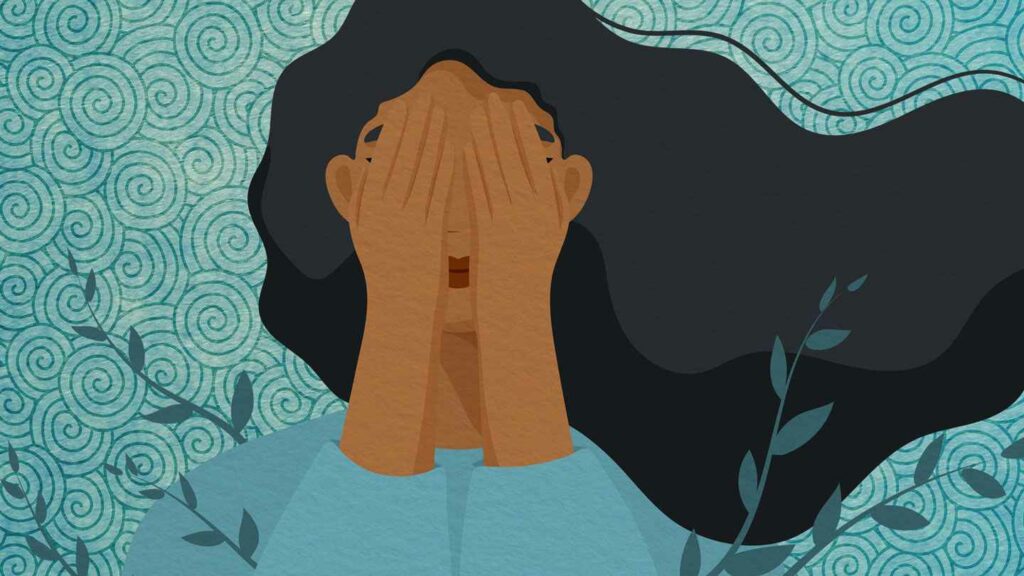Depression is a serious mental illness that affects millions of people around the world. While there are many different types of depression, one form that is particularly dangerous is called “acute depression.” Acute depression can cause suicidal thoughts and tendencies, and it requires urgent treatment. In this blog post, we will discuss what acute depression is, and how you can get help if you or someone you know is suffering from it.
Contents
What Is Acute Depression?
 Acute depression, also known as clinical depression, major depressive disorder, or simply depression, is a mental disorder characterized by a low mood, loss of interest in activities, and decreased energy. While we all feel down from time to time, acute depression is more than just temporary sadness.
Acute depression, also known as clinical depression, major depressive disorder, or simply depression, is a mental disorder characterized by a low mood, loss of interest in activities, and decreased energy. While we all feel down from time to time, acute depression is more than just temporary sadness.
It is a condition that lasts for weeks or months, and can interfere with your ability to work, study, eat, sleep, and enjoy activities you once found pleasurable. Many people with acute depression also have symptoms of anxiety.
According to studies, acute depression is one of the most common mental disorders, affecting more than 300 million people worldwide. While it can occur at any age, the condition is most commonly diagnosed in adults aged 18-25. The reason, however, is not yet known.
Therefore, if you or someone you know is experiencing any of the above symptoms, it is important to seek professional help.
How To Identify It?
It might be hard to tell the difference between regular old sadness and depression. After all, they both involve feeling down, right? While it’s true that both conditions share some common symptoms, there are key differences between them.
For starters, sadness is a normal emotion that everyone experiences from time to time in response to difficult life events or circumstances, such as the loss of a loved one, financial troubles, or relationship problems. These feelings are usually short-lived and resolved on their own or with the help of support from family and friends.
On the other hand, depression is a serious mental health condition that can have a profound effect on every aspect of your life. It doesn’t just go away on its own and usually requires treatment from a mental health professional to get better.
Depression can be difficult to recognize because it doesn’t always look the same for everyone. Some people may seem sad all the time, while others may not show any outward signs at all.
Here are some common symptoms of depression:
- Persistent feelings of sadness, anxiety, or emptiness
- Loss of interest in hobbies and activities that used to bring joy
- Insomnia or sleeping too much
- Overeating or appetite loss
- Fatigue and decreased energy levels
- Difficulty concentrating, remembering details, or making decisions
- Feelings of hopelessness, worthlessness, or guilt
- Physical symptoms that don’t respond to treatment, such as headaches or chronic pain
The symptoms might seem like a case of the blues at first, but they last longer—usually for weeks or months—and interfere with your daily life and ability to function. If you’re experiencing any of these symptoms, it’s important to reach out for help.
Can Depression Be Only Acute Or Chronic?
 Now, what about people who experience a depressive episode that is relatively short-lived? Is it still possible for them to have clinical depression? The answer is yes. Even if someone only experiences an episode of depression for a couple of weeks, they may still be diagnosed with clinical depression. This type of depression is called acute depression.
Now, what about people who experience a depressive episode that is relatively short-lived? Is it still possible for them to have clinical depression? The answer is yes. Even if someone only experiences an episode of depression for a couple of weeks, they may still be diagnosed with clinical depression. This type of depression is called acute depression.
Depression can be categorized into these two types, but it is important to remember that depression is a spectrum. There are different levels of severity within each type of depression.
Acute depression can range from mild to severe. People who experience mild acute depression may still be able to function relatively well in their day-to-day lives. However, those who experience severe acute depression may have a hard time getting out of bed and may need to be hospitalized.
Chronic depression is the most severe type of depression. People who suffer from chronic depression may experience symptoms for years. This can lead to a decline in their overall health and well-being. In some cases, people with chronic depression may also experience suicidal thoughts or attempt suicide.
If you think you may be suffering from depression, it is important to seek help from a mental health professional. Depression is a serious condition that can be treated. With the right treatment, you can live a happy and healthy life.
What Are The Causes And Risk Factors?
There are various causes that contribute to the development of acute depression. These include:
- Biological: Hormonal imbalances in the body can lead to acute depression. For example, people who have hypothyroidism or a history of mental illness in their family are at a higher risk of developing depression.
- Environmental: Exposure to traumatic events or prolonged stress can trigger acute depression. This could include things like bullying, the death of a loved one, or financial problems.
- Psychological: Having negative thoughts and low self-esteem can make someone more susceptible to developing acute depression. Additionally, people who suffer from anxiety or other mental disorders are also at a higher risk.
These are some common causes, however, there are many other potential causes as well. It’s important to speak with a doctor or mental health professional to determine what might be contributing to your depression. Additionally, let’s outline a few risk factors that increase one’s chance of developing acute depression. These include:
- A family history of depression or other mental health disorders
- Certain medical conditions, such as thyroid problems or cancer
- Certain medications, such as corticosteroids or beta-blockers
- Substance abuse
Therefore, if you are experiencing any of the above symptoms, it is important to reach out for help. Depression is a serious condition that should not be ignored. There are many resources available to those who are struggling, so please do not hesitate to seek out assistance.
How Does It Impact Life?
 There can be many different impacts of acute depression on a person’s life. Some common negative impacts include:
There can be many different impacts of acute depression on a person’s life. Some common negative impacts include:
- Difficulty functioning at work, home, or school
- Withdrawing from friends and activities that were once enjoyed
- Trouble eating or sleeping
- Engaging in risky behaviors, such as drug use or driving recklessly
- Strained relationships with family and friends
- Increased anxiety or irritability
- Thoughts of suicide or death
Acute depression can make it hard to get through the day. It can impact every aspect of life, from work and school performance to friendships and family relationships. If you’re struggling with acute depression, it’s important to seek professional help.
You should remember that you’re not alone and that help is available. Many people with acute depression feel better with treatment.
How Is It Diagnosed?
A diagnosis of acute depression is made by a mental health professional based on a clinical evaluation. This usually includes a complete medical and psychiatric history and a psychological evaluation. In this evaluation, the mental health professional will ask about your symptoms, and how long you have been experiencing them.
And any other factors that may be contributing to your depression. They will also ask about your family history of mental illness and any personal or social stressors you may be experiencing.
In addition, a physical examination may also be done to rule out other possible causes of the symptoms. Blood tests may be done to rule out other medical conditions. Because there is often a close relationship between physical and mental health.
Acute depression is diagnosed when a person has experienced five or more of the following symptoms for two weeks or more:
- Sadness or a gloomy mood most of the day, nearly every day
- Significant weight loss or gain, or decrease or increase in appetite
- Sleeping too much or not being able to sleep
- Agitation or feeling slowed down
- Trouble thinking, concentrating, or making decisions
- Recurrent thoughts of death or suicide.
If you think you may be suffering from acute depression, please see a mental health professional for an evaluation. With proper treatment, most people with acute depression will start to feel better within a few weeks.
How Acute Depression Is Treated?
If you’re experiencing acute depression, it’s important to seek professional help. This type of depression is best treated by a combination of medication and therapy. Let’s discuss each treatment option in more detail.
Medication
 Acute depression is usually treated with a class of antidepressant medications called selective serotonin reuptake inhibitors (SSRIs). These drugs work by increasing levels of serotonin in the brain. Serotonin is a neurotransmitter that helps regulate mood. Other medications that may be used to treat acute depression include:
Acute depression is usually treated with a class of antidepressant medications called selective serotonin reuptake inhibitors (SSRIs). These drugs work by increasing levels of serotonin in the brain. Serotonin is a neurotransmitter that helps regulate mood. Other medications that may be used to treat acute depression include:
- Serotonin and norepinephrine reuptake inhibitors (SNRIs)
- Tricyclic antidepressants
- Monoamine oxidase inhibitors (MAOIs)
Medications can cause a few side effects for some people. These side effects may include:
- Nausea
- Insomnia
- Dry mouth
- Anxiety
- Dizziness
- Headaches
If you experience any of these side effects, be sure to talk to your doctor. They may be able to prescribe a different medication.
Therapy
Therapy is believed to be one of the most effective treatments for acute depression. It can help you understand your condition and give you the tools to manage your symptoms. Therapy can be done in individual or group settings, and it may be conducted by a psychologist, psychiatrist, or other mental health professional.
The most common therapy is CBT which focuses on identifying and changing negative thinking and behaviors. Other types of therapy that may be used to treat acute depression include:
- Interpersonal therapy
- Problem-solving therapy
- Psychoeducation
Just make sure to discuss your treatment options with your doctor or mental health professional to figure out what will work best for you.
Support groups
Many people find that connecting with others who have similar experiences is helpful. Support groups provide a space to share what you’re going through and to receive support and advice from others. There are many different types of support groups, so it’s important to find one that feels right for you.
There are also online support groups available if attending a traditional group isn’t possible or feels too daunting. These groups can be a great way to connect with others from the comfort of your own home.
Healthy lifestyle
 A healthy lifestyle includes regular physical activity. It is recommended that adults should do at least 150 minutes of moderate-intensity aerobic activity every week. This can be broken down into smaller sessions, such as 30 minutes five times a week.
A healthy lifestyle includes regular physical activity. It is recommended that adults should do at least 150 minutes of moderate-intensity aerobic activity every week. This can be broken down into smaller sessions, such as 30 minutes five times a week.
In addition to regular physical activity, a healthy diet is important for maintaining mental health. Eating a balanced diet that includes plenty of fruits, vegetables, and whole grains can help reduce the symptoms of depression.
There are also a number of things that you can do to manage stress and anxiety. These include:
- Relaxation techniques such as yoga or meditation
- Getting enough sleep
- Spending time with friends and family
- Making time for hobbies
Natural remedies
There are some natural remedies that have been found to be effective in treating acute depression. St. John’s Wort is a popular herbal remedy that has been shown to be effective in treating mild to moderate depression. Other herbs that have been traditionally used to treat depression include:
- SAM-e, Ginkgo Biloba
- Omega-three fatty acids
- Acupuncture
- Massage
- Aromatherapy
These are just a few of the natural remedies that have been found to be effective in treating acute depression. If you are suffering from acute depression, it is important to talk to your doctor about all of your treatment options.
Conclusion
In conclusion, acute depression is often a result of a traumatic event or a change in life circumstances. It is important to seek professional help if you are experiencing any symptoms of depression, as it can be a very debilitating condition. Hence, there are many treatment options available, so there is no need to suffer in silence.
You should not hesitate to consult a healthcare professional to get the help you need. With the right treatment, you can start to feel better and enjoy your life again.
For more information and guidance please get in touch with our expert therapists at Therapy Mantra. They will be more than happy to assist you on your journey to recovery. Contact us today to learn more about our services. You can also book an online therapy session or download our free Android or iOS app.


